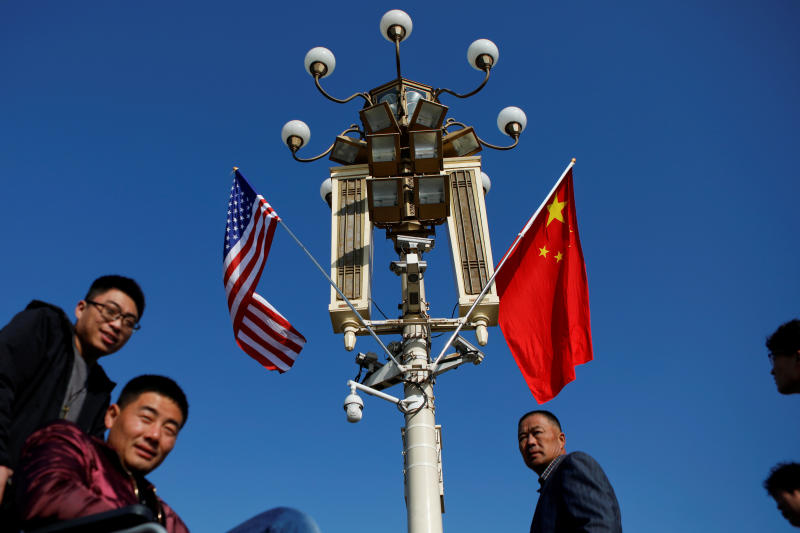Asia shares recover after tariff hike with state funds said to boost China stocks
Sign up now: Get ST's newsletters delivered to your inbox

Markets saw heavy trading volumes as investors reacted to a rolling series of headlines on the US-China trade war.
PHOTO: REUTERS
Follow topic:
HONG KONG (BLOOMBERG, REUTERS) - Asian stocks swung in a volatile session on hopes that US and China might still reach a trade deal, even after US President Donald Trump hiked tariffs on US$200 billion of Chinese goods and China vowed to take countermeasures.
Markets saw heavy trading volumes as investors reacted to a rolling series of headlines on the US-China trade war.
Singapore stocks rebounded on Friday afternoon, after briefly paring gains in the early trade, as investors digested the impact of Trump's tariff hike on US$200 billion of Chinese goods.
As at 1:01pm on Friday, the Straits Times Index fell 0.05 per cent, or 1.71 points to 3,267.99, after opening stronger at the start of the day.
But by 2:45pm, the benchmark index was up again, rising 0.25 per cent, or 8.11 points to 3,277.81.
Japan's Topix went from a 0.9 per cent gain to a loss of as much as 0.7 per cent before closing down just 0.08 per cent.
In China, state funds jumped in after the lunch break, when the Shanghai Composite Index dropped 0.4 per cent after being up as much as 2.6 per cent in the morning session, according to two people familiar with the matter.
By the close, the Shanghai Composite was back up 3.1 per cent. By contrast, Japanese shares - which had also risen in the Asian morning session - closed down in the wake of the escalation in tensions between the world's two largest economies.
In Hong Kong, the Hang Seng Index closed up 0.8 per cent while Australia's S&P/ASX 200 index and South Korea's Kospi index firmed 0.3 per cent.
Futures on the S&P 500 Index saw a similar swing, falling 0.3 per cent after the higher tariffs kicked in but trading unchanged later in the afternoon.
In South Korea, the central bank is suspected to have sold around US$1 billion on Friday to stem a rapid fall by the country's currency, three currency dealers said after onshore trading ended.
The won dropped as low as 1,182.9 per US dollar at midday, its weakest since January 2017, prompting the Bank of Korea to sell dollars to stem a further drop, the dealers said.
"Authorities started to intervene in the market after the won reached the year's low, especially in the afternoon," said a dealer who insisted on anonymity.
The won has fallen about 5.3 per cent against the dollar this year, making it Asia's worst performing currency.
The first day of high-level talks in Washington was reported to have made little progress, then official confirmation came of President Donald Trump's imposition of 25 per cent tariffs on about US$200 billion of Chinese goods. China has yet to specify how it will retaliate, while expressing the hope of addressing differences through negotiation. Talks are scheduled to resume on Friday.
"While we believe that a trade deal will eventually be reached between the US and China, the risk of a complete breakdown in trade talks has certainly increased," Michael Taylor, a credit strategist at Moody's Investors Service in Hong Kong, wrote in a note. "Higher tariffs could also lead globally to the repricing of risk assets, tighter financing conditions, and slower growth."
In the Treasury market, 10-year yields dipped below three-month ones, in the first inversion since March, during the US session overnight. Elsewhere, emerging market currencies held up on Friday, with Korea's won among those appreciating against the US dollar.
Some in the market may be watching to see whether Beijing's hand comes into play. Chinese state-backed funds had been active in selected stocks on Monday, people familiar with the matter said. Past instances of Chinese market intervention have tended to become most visible during the afternoon, with sudden swings in stocks that have large weightings in benchmark indexes.

